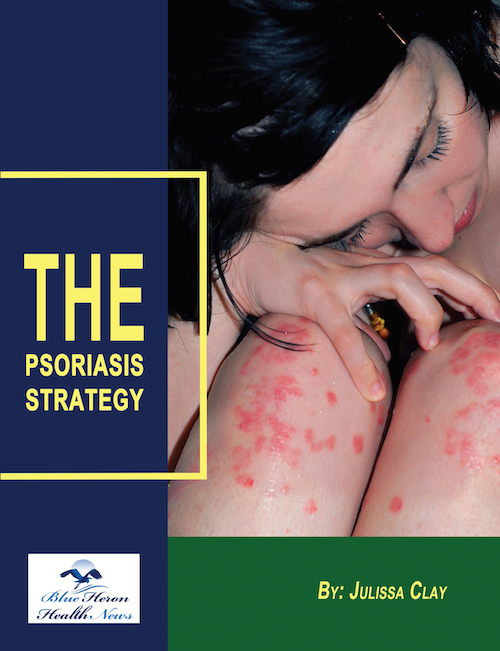
The Psoriasis Strategy™ By Julissa Clay to treat your skin problem of psoriasis The Psoriasis Strategy can be the best option for you as it can help you in curing your skin problem without worsening or harming your skin condition. All the tips provided in this eBook can help you in treating your psoriasis permanently, regardless of the period you are suffering from it.
How does psoriasis differ from eczema?
Psoriasis and eczema (also known as atopic dermatitis) are both chronic skin conditions that can cause significant discomfort and impact quality of life. However, they differ in their causes, symptoms, appearance, and treatment approaches. Here’s how psoriasis and eczema differ:
1. Underlying Causes
- Psoriasis:
- Autoimmune Disorder: Psoriasis is primarily an autoimmune disorder, where the immune system mistakenly attacks healthy skin cells, leading to rapid skin cell turnover and buildup.
- Genetic Factors: Psoriasis often has a genetic component, with a strong family history of the condition. Certain genes are associated with an increased risk of developing psoriasis.
- Triggers: Common triggers include stress, skin injuries, infections, certain medications, and environmental factors.
- Eczema (Atopic Dermatitis):
- Immune System Dysfunction: Eczema is thought to be related to an overactive immune response, but it is not classified as an autoimmune disease. It involves a combination of immune system dysfunction, genetic factors, and environmental triggers.
- Barrier Dysfunction: Eczema is associated with a compromised skin barrier, making the skin more susceptible to irritation and infection. The skin’s inability to retain moisture contributes to dryness and inflammation.
- Triggers: Triggers for eczema include allergens (such as pollen, pet dander, and dust mites), irritants (such as soaps, detergents, and fabrics), stress, and changes in temperature or humidity.
2. Symptoms and Appearance
- Psoriasis:
- Thick, Scaly Patches: Psoriasis is characterized by thick, red patches of skin covered with silvery-white scales. These plaques are often well-defined and can vary in size.
- Common Locations: Psoriasis plaques commonly appear on the elbows, knees, scalp, lower back, and face, but they can develop anywhere on the body.
- Other Symptoms: Psoriasis may also cause itching, burning, and soreness. Nail changes (pitting, thickening) and joint pain (psoriatic arthritis) are also associated with psoriasis.
- Eczema (Atopic Dermatitis):
- Red, Inflamed Skin: Eczema presents as red, inflamed, and often swollen skin that is intensely itchy. The affected areas may become dry, cracked, and prone to infection.
- Common Locations: Eczema often affects the face, neck, inside of the elbows, behind the knees, wrists, and ankles. In infants, it frequently appears on the cheeks and scalp.
- Itchiness: Eczema is known for intense itching, which can lead to scratching, worsening the condition, and causing the skin to thicken (lichenification) over time.
3. Age of Onset
- Psoriasis:
- Age of Onset: Psoriasis can develop at any age, but it most commonly appears in early adulthood (between ages 15 and 30) and in the 50s to 60s.
- Chronic Course: Psoriasis tends to be a lifelong condition with periods of flare-ups and remissions.
- Eczema (Atopic Dermatitis):
- Age of Onset: Eczema often begins in childhood, with many cases developing before the age of 5. However, it can also persist into adulthood or start later in life.
- Tendency to Improve: Some children outgrow eczema as they age, but others may continue to experience symptoms throughout their lives.
4. Triggers
- Psoriasis:
- Triggers: Psoriasis can be triggered by factors such as stress, skin injuries (Koebner phenomenon), infections (especially streptococcal throat infections), certain medications (like beta-blockers and lithium), and cold weather.
- Eczema (Atopic Dermatitis):
- Triggers: Eczema is often triggered by environmental factors, including allergens (pollen, dust mites), irritants (soaps, detergents, fragrances), weather changes, stress, and sweat.
5. Treatment Approaches
- Psoriasis:
- Topical Treatments: Psoriasis treatments include topical corticosteroids, vitamin D analogs (like calcipotriene), and retinoids.
- Systemic Treatments: For moderate to severe psoriasis, systemic treatments may be necessary, including biologics (such as TNF inhibitors and IL-17 inhibitors), oral retinoids, and methotrexate.
- Light Therapy: Phototherapy (UVB or PUVA) is another treatment option for psoriasis.
- Eczema (Atopic Dermatitis):
- Moisturizers: Eczema treatment focuses on maintaining skin hydration with emollients and moisturizers to restore the skin barrier.
- Topical Corticosteroids: These are commonly used to reduce inflammation and control flare-ups.
- Other Treatments: Calcineurin inhibitors (tacrolimus, pimecrolimus), antihistamines (for itching), and avoiding known triggers are important in managing eczema.
- Severe Cases: In severe cases, systemic treatments like biologics (dupilumab), oral corticosteroids, or immunosuppressants may be used.
6. Associated Conditions
- Psoriasis:
- Psoriatic Arthritis: Psoriasis is often associated with psoriatic arthritis, an inflammatory joint condition that can cause joint pain, stiffness, and swelling.
- Metabolic Syndrome: People with psoriasis are at increased risk for metabolic syndrome, cardiovascular disease, and diabetes.
- Eczema (Atopic Dermatitis):
- Allergies and Asthma: Eczema is often part of the “atopic triad,” along with asthma and allergic rhinitis (hay fever). People with eczema are more likely to develop these allergic conditions.
- Infections: Eczema-prone skin is more susceptible to bacterial, viral, and fungal infections due to the impaired skin barrier.
Summary
Psoriasis and eczema are both chronic skin conditions, but they differ in their underlying causes, symptoms, and treatment approaches. Psoriasis is an autoimmune disorder characterized by thick, scaly plaques and can be associated with joint issues, while eczema is linked to immune dysfunction and barrier defects, leading to red, inflamed, and itchy skin. Treatment for psoriasis often involves systemic medications and phototherapy, whereas eczema treatment focuses on moisturizing, avoiding triggers, and using anti-inflammatory medications.

The Psoriasis Strategy™ By Julissa Clay to treat your skin problem of psoriasis The Psoriasis Strategy can be the best option for you as it can help you in curing your skin problem without worsening or harming your skin condition. All the tips provided in this eBook can help you in treating your psoriasis permanently, regardless of the period you are suffering from it.